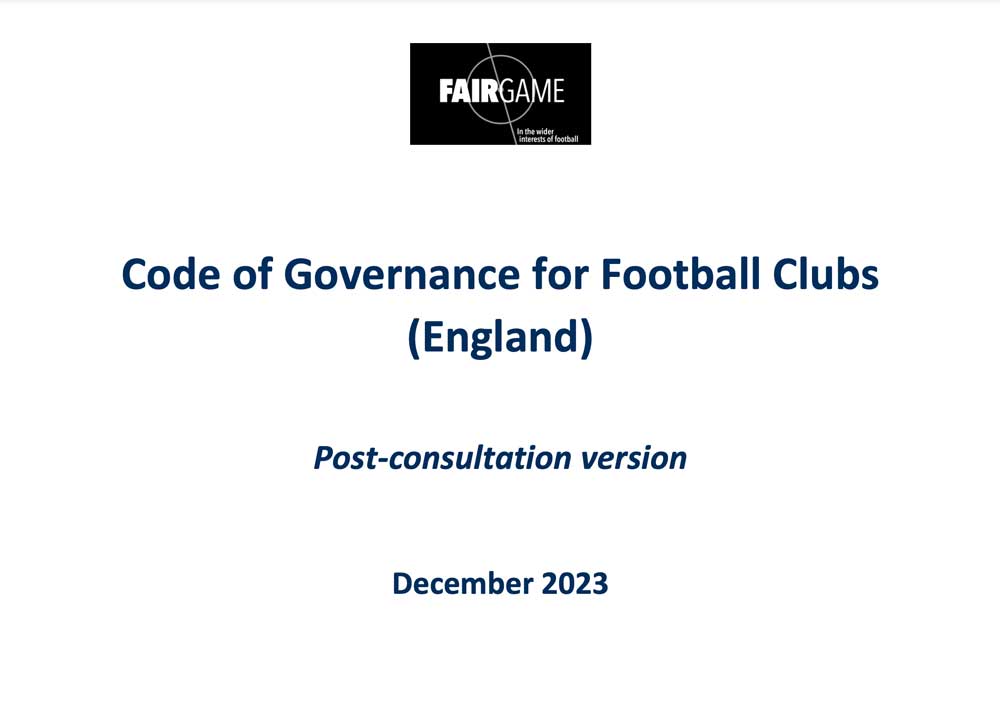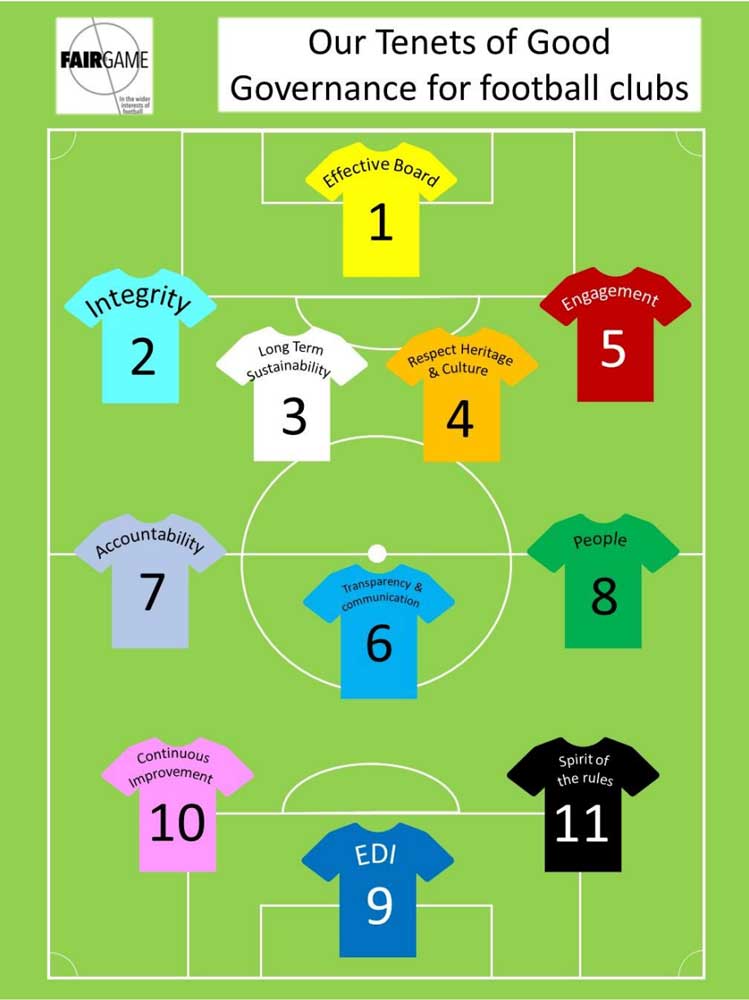Football needs proper governance
Showing poor financial management and breaching the rules the red card

GOVERNANCE & REGULATION
Image: Istock

Greg Campbell
Partner, Campbell Tickell

Greg Campbell
Partner, Campbell Tickell
Issue 70 | February 2024
Everton docked 10 points for breaching financial sustainability rules in 2021/22.
Everton face further charges, alongside Nottingham Forest, for breaching the Premier League’s profit and sustainability rules in 2022/23.
Manchester City facing 115 charges for alleged financial wrongdoing between 2009 and 2018.
Chelsea facing allegations of secret payments in breach of financial fair play rules when Russian oligarch Roman Abramovich owned the club.
Football’s governance problems are not confined to the Premiership. A string of clubs at other levels of the football pyramid have experienced difficulties, the latest of which is Reading, where fans invaded the pitch and forced the abandonment of their League One game against Port Vale on 13 January.
This was in protest at the behaviour of owner Dai Yongge, whose mismanagement of the club – including failure to pay club staff – has led to points deductions and financial penalties. 120 year old Southend FC narrowly escaped being wound up in October, owing £2.5m to HMRC and others, while Sheffield Wednesday also avoided similar with late payment of a £2m debt to HMRC.
Meanwhile, some of those involved in the European Super League fiasco in 2021 have clearly failed to learn the lessons of that proposition crashing and burning in the face of fan-led and political opposition. The proposed competition’s sponsors, A22, plus two of the clubs initially involved, Real Madrid and Barcelona, are once again still trying to push it, even if the other clubs involved in the initial scheme are showing no interest in a resuscitation at this time.
And this is just some of what has been under the spotlight in recent months. Go back to 1983, and 53 clubs have been placed in administration since that time, on 70 separate occasions.
- 52% of clubs in the top 4 leagues have a negative net worth
- Since the Premier League was created in 1992, there have been 64 instances of clubs collapsing into administration in the top 4 divisions
- In the 21/22 season Championship clubs spent an average of 126% of their revenue on players’ wages
- The Premier League gives more money to one parachute payment club than it does to all 120 clubs in Leagues 1 and 2 and the National League combined
Source: Fair Game
Incoming legislation
The governance of football is in a mess. And it is the fans and local communities that suffer when a local club dies, as has happened to Bury, Macclesfield and others.
Of course, a cynic might say that a driver for the enhanced action by the existing governing bodies on issues like financial fair play, highlighted above, could be the prospect of legislation to introduce independent regulation of the game. Indeed, the King’s Speech on 7 November contained a commitment to introduce a bill for an independent regulator for men’s football.
This followed the commitment in the government’s 2019 manifesto to a fan-led review of football governance, which was delivered in 2021 – the Crouch Review – and a White Paper in February 2023. The proposition is strongly supported by all the main parties at Westminster, and is expected to become a reality, whether in this parliament or the next.
It is worth noting that this reform is, for now, confined to men’s football. Women’s football is subject to a separate review process.
“The governance of football is in a mess. And it is the fans and local communities that suffer when a local club dies.”
Proposed code of governance
It’s against this backdrop that Fair Game – a network of 34 clubs at all levels of the football pyramid, from the National League to the Premiership – has developed its own proposed code of governance for football clubs, to give the new regulator, once established, a head start in this area.
The code, which has been developed with particular input from Campbell Tickell, draws from a number of other existing codes. It is based on the UK Corporate Governance Code, but includes elements from the Sport England Governance Code, the EFL Trust’s Capability Code of Practice, the National Housing Federation Code, and the Wates Corporate Governance Code for large private companies. Set out in three bands with different levels of requirements according to clubs’ capacity and financial turnover, the code can be found here.
And that’s not all. Fair Game has views too on how independent football regulation should operate. A paper setting out preliminary thinking has been developed, again with input from Campbell Tickell, and can be found at www.fairgameuk.org/press-releases/regulator. It highlights nine pillars for effective regulation:
- Independence
- Governance
- Accountability, transparency, appeals and complaints handling
- Professionalism and expertise
- Representativeness
- Diversity and inclusion
- Capability to act promptly
- Authority and funding
- Delegated authority
The governance of the sport sorely needs to change, in the interests of fans and communities, but players and staff too. The prospects of delivering this are stronger now than ever.



